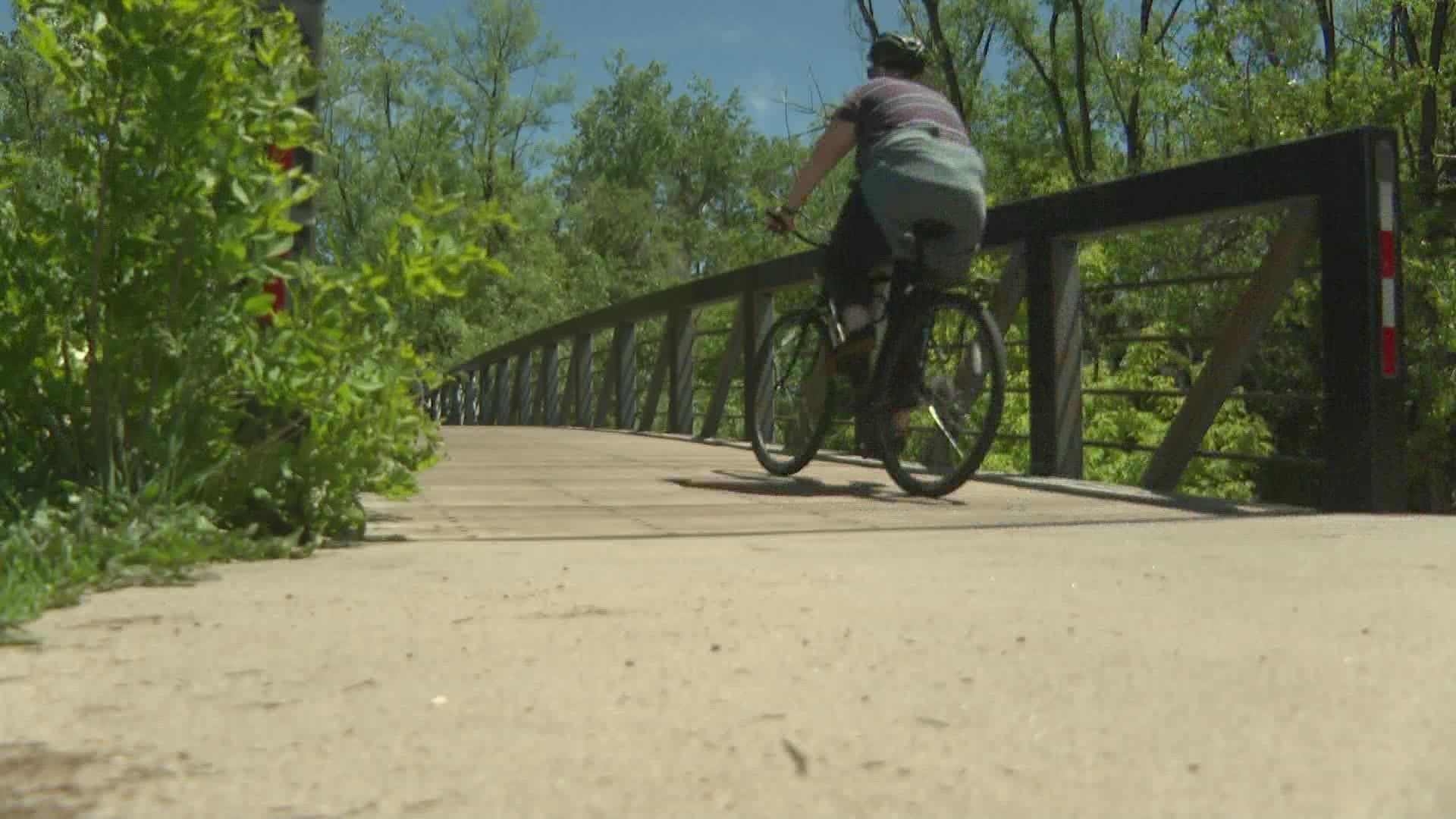BOULDER, Colo. — The City of Boulder is looking for volunteers this summer to take part in a project with the National Oceanic and Atmospheric Administration (NOAA) to pinpoint neighborhoods most impacted by extreme heat.
Boulder needs 100 "citizen scientists" to mount heat sensors to cars and bikes to help create a heat map of the city. Data the community collects will allow the city to find climate solutions tailored down to individual neighborhoods.
"What we’ve thought about climate change is that it was this global phenomenon, but I think one of the things that we’re starting to realize is that we can affect our local climate, too," said Brett KenCairn, Boulder's senior policy advisor for climate and resilience.
When temperatures rise across Colorado this summer, the heat will impact areas differently, KenCairn explained. City landscapes tend to be hotter than surrounding rural areas.
"There's a phenomena called an urban heat island, and it has to do with when we have basically removed vegetation and put down a lot of materials that absorb heat and don’t absorb water, by the way, like our black streets – that starts to raise the temperature of that locale," KenCairn said.
Boulder may be landlocked, but it's also an urban heat island. Boulder is one of 14 cities or counties in the United States selected to take part in the NOAA project.
"The meteorologists at NOAA who do their magic will figure out when the hottest day of the year is, and on that day, we’ll have folks going out to drive these predesignated routes that sort of capture a lot of data about heat and how it is in our community," KenCairn said.
The NOAA project complements Boulder's efforts with "Cool Boulder," an initiative that seeks to find natural climate solutions. Boulder will share data with NOAA from its own stationary heat sensors already placed around the city to help create a detailed heat map.
"With that heat map, we can then say, where should we be planting trees?" KenCairn said. "Where should we be changing surfaces? Where can we implement other things that will help us achieve that cooling?"
A heat map could ultimately help cool down a city.
"That's the work that our communities I think are really excited to start doing," KenCairn said.
In 2021, 799 volunteers collected 1.2 million measurements in 24 communities to create similar heat maps, according to NOAA.
If you'd like to volunteer to help Boulder with the project, you can apply here.
SUGGESTED VIDEOS: Latest from 9NEWS

